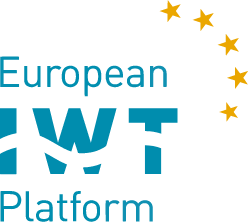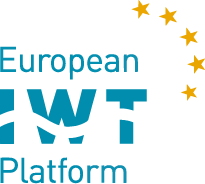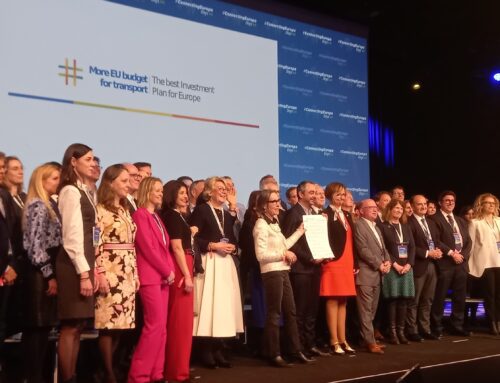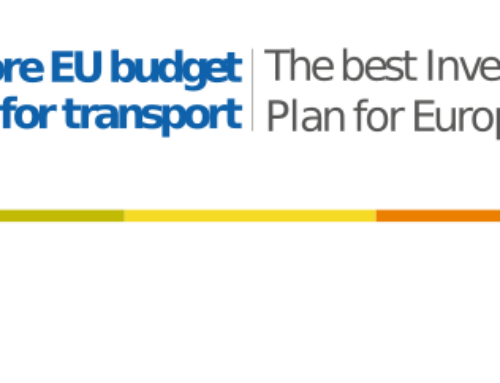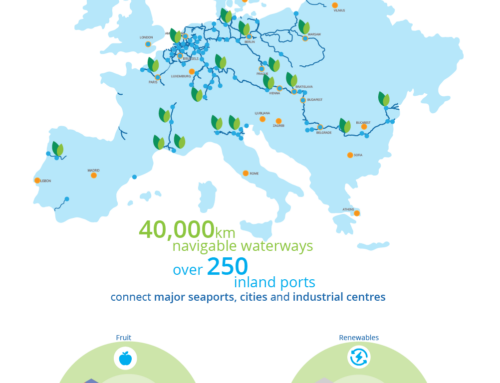The 43rd meeting of the UNECE ADN Safety Committee took place from January 22 to 26, 2024, at the Palais des Nations (Geneva). The primary objective of the ADN Safety Committee is to continually review the ADN regulations to assess their compliance with current safety standards and requirements, practical feasibility, and whether amendments are necessary.
The interests of the inland waterway transport sector were represented collectively by the European organisations EBU and ESO with additional support from the European IWT Platform Safety and Environment Committee. The EBU/ESO/IWT-P delegation included Michael Zevenbergen, Elena Siebrecht, Ton Wingelaar and Dirk Beernaert.
The proposals for amendments and discussion papers, submitted for both decision-making and discussion, were prepared and deliberated in advance by associations and ministries in the Contracting States.
Similar to the national delegations, EBU/ESO have the right to submit their document proposals and make official statements. In total, more than 60 documents were submitted for consideration at the meeting.
Changes for the 2025 ADN
Significant changes were agreed for the 2025 edition of the ADN. Particularly noteworthy are the new regulations concerning the opening of cargo tank openings. The proposal, which was drawn up by the German delegation with the expertise of industry representatives, addressed the outdated provisions of Part 7. These provisions among the oldest in the ADN, have not been evaluated in terms of their practical suitability since they came into force. The amendments that have now been adopted take into account the current needs and requirements of carriers, fillers, consignors and unloaders in the operational process of transporting liquid dangerous goods. In addition, the conditions under which cargo tank openings may be opened are systematically presented in order to reliably and appropriately limit the hazards arising from gases/vapors released from cargo tanks.


Three amendments proposed by EBU/ESO were also adopted:
-1. The amendment involves removing the term/characteristic “spring-loaded” from the definition for „Safety valve“ in section 1.2.1 of the ADN, to acknowledge that other designs (e.g. weight-loaded) are also suitable and appropriate depending on the intended use and opening pressure.
-2. A contradiction within the ADN regarding vacuum valve requirements has been resolved. Sections 9.3.2.22.5 a) and 9.3.3.22.4 d), correctly specify the need for deflagration safety for the vacuum valve. On the other hand, the existing section 9.3.2.22.4 b) stipulates that the vacuum valve must be fitted with a detonation-proof flame arrester. Given that only atmospheric deflagration, not detonation, is likely to occur in practice, this requirement is deemed necessary. Consequently, section 9.3.2.22.4 b) is amended accordingly for ADN 2025.
-3. The maximum allowable volume of cargo samples on board supply vessels and other vessels delivering products for the operation of vessels has been increased from 500 ml to 1 l because in some cases a required sample quantity exceeds the maximum quantity of 500 ml currently permitted in the ADN. However, the total quantity of cargo samples may not exceed 250 liters on board the ship under the new regulation, nor may the number of 500 cargo samples.
Further proposals by EBU/ESO addressing the issues of non-empty loading arms/loading hoses, among other things, but which unfortunately could not be discussed due to a lack of time, will be resubmitted to the next meeting in August. Informal documents that were discussed will also be submitted as official working documents for the next meeting.
Moreover, EBU/ESO submitted a discussion request to provide training and examination of ADN experts in the English language. Introducing such an option, could attract trainees from non-European countries who are familiar with the English language to the profession of an inland navigation skipper. The Safety Committee has confirmed by consensus that the ADN makes no statement as to the language in which the training and examination must be held. Each contracting state therefore has the competence to decide, within the framework of its own legal and official regulations, the language in which teaching and the examination are to be conducted.
The Safety Committee further debated several requests for a recommendation for ships with alternative fuels/propulsion systems, but was again unable to issue such a recommendation because too many issues could not be clarified, in particular the -possible- interaction between the alternative fuel and the dangerous cargo.
The topic of the increased collision energies resulting from the TNO study and the associated regulations to be revised in section 9.3.4 (calculations for tanks) was also discussed intensively. The recommended classification societies had submitted a detailed document on the proposed changes. As a result, however, it was determined that these are not yet ready for a decision and that the effects on practice must first be examined in detail.
Next steps
Concluded the 43rd session, the committee looks ahead to the upcoming session scheduled for August 26-30, 2024, anticipating further discussions and decisions.
Author: Elena Siebrecht
